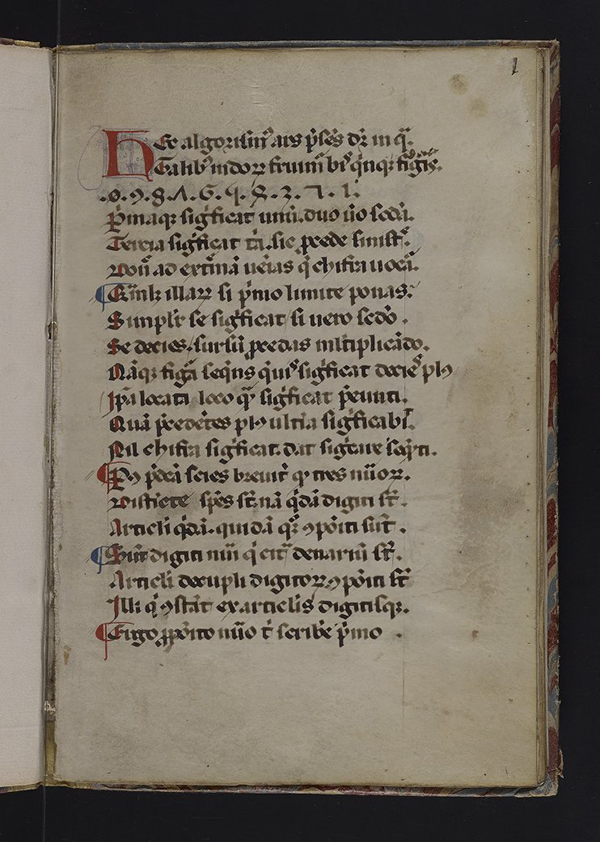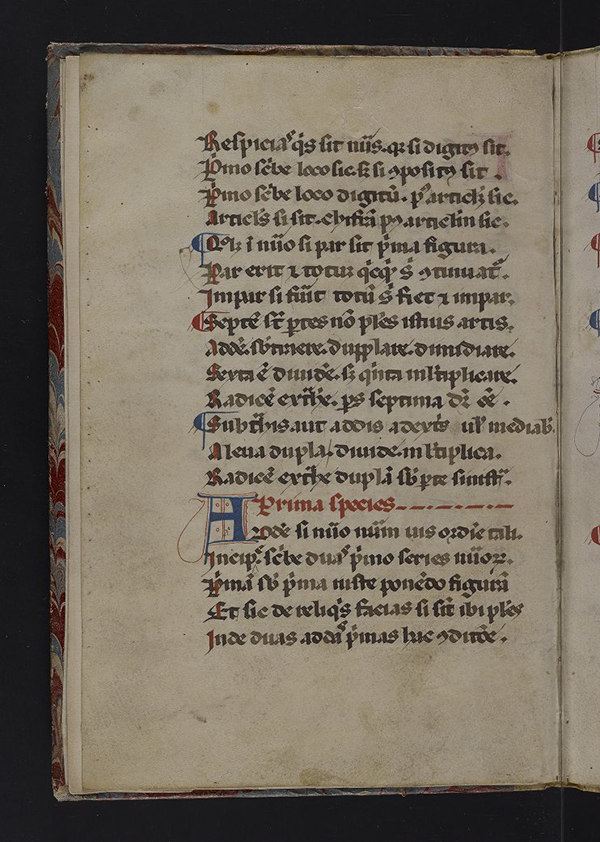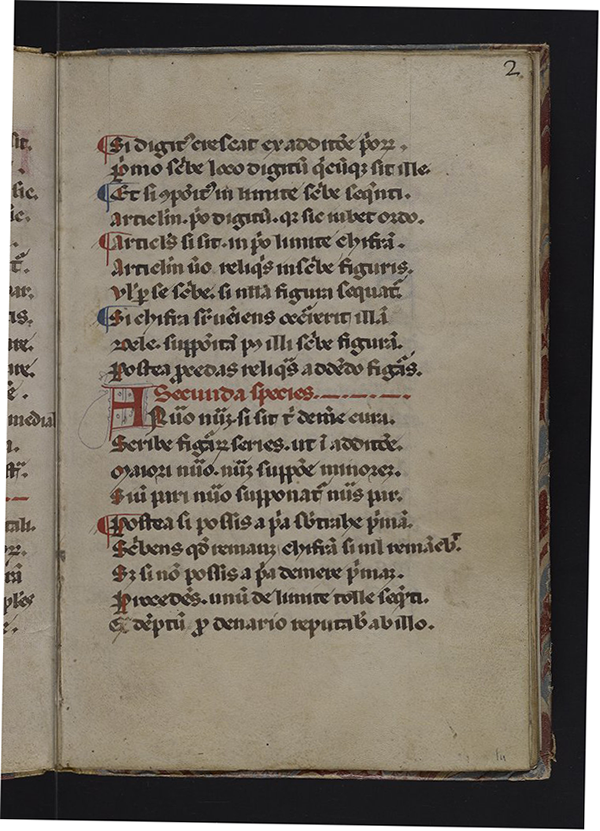- About MAA
- Membership
- MAA Publications
- Periodicals
- Blogs
- MAA Book Series
- MAA Press (an imprint of the AMS)
- MAA Notes
- MAA Reviews
- Mathematical Communication
- Information for Libraries
- Author Resources
- Advertise with MAA
- Meetings
- Competitions
- Programs
- Communities
- MAA Sections
- SIGMAA
- MAA Connect
- Students
- MAA Awards
- Awards Booklets
- Writing Awards
- Teaching Awards
- Service Awards
- Research Awards
- Lecture Awards
- Putnam Competition Individual and Team Winners
- D. E. Shaw Group AMC 8 Awards & Certificates
- Maryam Mirzakhani AMC 10 A Awards & Certificates
- Two Sigma AMC 10 B Awards & Certificates
- Jane Street AMC 12 A Awards & Certificates
- Akamai AMC 12 B Awards & Certificates
- High School Teachers
- News
You are here
Mathematical Treasure: Carmen de Algorism

In approximately the year 1240, the French monk Alexandre de Ville Dei (or Villedieu) wrote Carmen de Algorism (Song of Algorism), a didactical poem, written in Latin hexameter rhyme, concerning the integers and their operations (or species). The pages shown here are from a Spanish manuscript of the Algorism, dated between 1300 and 1350. The opening lines on the first page (above) are as follows (Swetz 1987, p. 28):
Here begins the algorismus.
This new art is called the algorismus, in
Which out of these twice fine figures
0 9 8 7 6 5 4 3 2 1
of the Indians we derive such benefit ...
While a brief tract, the Algorismus is the first work (after Fibonacci's Liber Abaci in 1202 and 1228) to introduce the symbol “0” for zero into the Latin literature. The author also erroneously attributed the symbols to an Indian ruler “Algor.” Thus were coined the terms: “algorismus” and “algorism.” These terms are now known to derive from the name of Al-Khwarizmi, the 9th century pioneer of algebra based in Baghdad (Swetz 1987, pp. 27-29). Mathematics historian and educator, David Eugene Smith, speaking of Europe, supported his contention that the Carmen de Algorism "probably did more to make known the Hindu-Arabic numerals than any other work of the [13th] century" (1958, p. 226) by noting the large number of copies that remained in European academic libraries in the early 20th century (1912, p. 57).
The first page (or folio), reverse side (or verso), of the Algorism follows:

The second page (or folio), front side (or recto), of the Carmen de Algorism is shown below.

The images above of the Carmen de Algorism were obtained through the courtesy of the University of California Libraries. A complete digital copy of this item can be viewed on the Libraries’ Internet Archive.
References
Frank Swetz, Capitalism & Arithmetic: The New Math of the 15th Century. Chicago: Open Court Publishing, 1987. (The pages cited in this article are accessible via Google Books.)
David Eugene Smith, History of Mathematics, Vol. 1, Courier, 1958 (originally published by Ginn & Co., 1953), accessed via Google Books.
David Eugene Smith, "Number Games and Number Rhymes, Chapter V: The Origin and Development of the Number Rhyme," Teachers College Record (ed. James Earl Russell), Vol. 13, No. 5 (November 1912), Teachers College, Columbia University, pp. 53-62, accessed via Google Books.
Frank J. Swetz (The Pennsylvania State University), "Mathematical Treasure: Carmen de Algorism," Convergence (January 2016)




